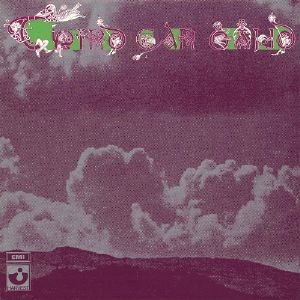
- Format: MP3

Size: 78.1 MB
Bitrate: 256
mp3
Ripped by: ChrisGoesRock
Artwork Included
Source: Japan 24-Bit Remaster
Third Ear Band were unusual in an era noted for unusual groups. The conventional armoury of the rock band was put through all kinds of odd permutations, but there was always something linking prog groups to conventional rock music - an electric guitar, a drumkit, conventional songs - but TEB had none of those things. violin, cello, oboe and hand held percussion played lengthy instrumental pieces which owed more to minimalism and ragas than to the Beatles or the Stones, so it's remarkable that all of their albums made it into the UK top 50 and that they became a fixture on the festival circuit.
This album (sometimes referred to as Elements) was their sophomore effort, and features four long pieces named after each of the four elements. Air opens the proceedings with some wind noises, the four musicians gradually fading in during the first two minutes. This sets the tone for the rest of the album; nobody solos, nobody coasts and the pieces have a mantra like, compelling quality to them. The playing is good from all four musicians. Glenn Sweeney's feverish percussion at times can be compared to some of Daniel Fieschelsher's work with Popol Vuh, another band who were as concerned with vertical texture as they were with linear development. Paul Minns plays the oboe with a surprising range of tone and impeccable phrasing - in some parts he's overdubbed, creating a shenai-like sound as the melody lines chase each other over the rhythmic foundation. Air is as light and breezy as it's title suggests, while Earth starts as a slow paced dance around the Maypole, with piizzacatto strings and plodding percussion, and gradually builds to a dervish frenzy befroe the whole thing falls away and starts again. Fire is a monotonous, dissonant piece that doesn't really go anywhere and takes over 9 minutes to do it, while Water is appropriately the gentlest of the four tracks, featuring another enchanting Paul Minns oboe part over a hypnotic beat and some low viola and cello chords. The album closes with the sound of waves lapping the shore, as it started with the sound of the wind.
THIRD EAR BAND originated from Canterbury and started out as a psychedelic band called THE GIANT SUN TROLLEY gaining residency in south-London clubs doing long and improvisations and eventually changing their names to THE HYDROGEN JUKEBOX, recording one live album as such with Sweeney's percussions as scissor's clipping noise (with the mike attached to them) as he progressively undressed completely his girlfriend by clipping her dress during the conert (cut-out were very "in" at that time). Having finished their concert recording they discovered all their equipment stolen. So by sheer coincidence and obvious necessity, they became an acoustic band taking the name THIRD EAR BAND.
They are considered by many to be the first who invented the term "world" music. Published during the late 60s an album as "Alchemy" is seen as a landmark of ethnic fusion music, including many elements of improvisations and obvious eastern and medieval accents. They used a lot of "raga" instrumentations thanks to cyclical, dancing oboe patterns and "tabla" percussions. They often included jazzy rock parts next to India spiritual music. Stylistically this is a band who have brought to the fore a kind of "transcultural" music. Their impressive and cult first effort was followed by what we can consider to be the summit of their career. Their self titled album recorded in 1970 is an outstanding collection of ethereal, ethnic improvisations, totally floating, extatic, consequently directed to a high level of consciousness. A real travel through suggestive, imaginative dreamscapes. The music is executed with genius and always orientated in favour of various acoustic experimentations. Originally released in 1972 for the Roman Polanski Movie their following "Macbeth" carries on this intense, trippy musical adventure but stresses the folk & medieval acoustic structures (including for the first time some vocals). Atmospheres are sometimes creepy, sinister admitting weird and melodic guitar lines. The music is less improvised and really turned to efficient, enchanting, moody and medieval ambiences. This one is recognised as their most popular effort. After a long break the band recorded in 1988 the album "live ghost" with a new line up, continuing a similar musical experience, always making a fusion between a sensitive raga / ethnic style and powerful jazzy rock improvisations. Their following efforts "Magic Music" (1990) and "Brain Waves" (1993) include more evident electronic arrangements and a mystical jazz/ ethnic rock combinations. [progarchives.com]
01. Air (10:29)
02. Earth (9:52)
03. Fire (9:19)
04. Water (7:04)